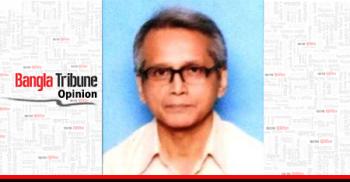 In advising caution to policymakers over Mr Imran Khan’s new innings as Pakistan’s Prime Minister, India’s Foreign policy mandarins certainly got it right. If early signs mean anything, Mr Khan’s first baby steps and utterances in his new avatar, defining his political priorities in the Asian subcontinent, suggest that it would be prudent not to expect too much from him.
In advising caution to policymakers over Mr Imran Khan’s new innings as Pakistan’s Prime Minister, India’s Foreign policy mandarins certainly got it right. If early signs mean anything, Mr Khan’s first baby steps and utterances in his new avatar, defining his political priorities in the Asian subcontinent, suggest that it would be prudent not to expect too much from him.
To assert this is not to grudge Mr Khan his hard-won political glory, nor to sound Cassandra– like warnings even before the first scene, first Act has ended in Pakistan’s latest political drama. Briefly, his probing first comment on sub continental matters encouraged optimism. If India took a positive step to improve bilateral ties, said the Khan, he would take two. He had thrown the ball in India’s court.
The Narendra Modi-led Indian Government took its time before sending its customary congrats to Mr Khan. For reasons unknown, some Pakistani officials construed this simple congratulatory message to mean that India was pushing for talks. In making their misinterpretation public, they only exposed their over-eagerness to create a larger- than- life persona for Mr Khan.
The implication of the Pakistani claim was that Mr Khan was so hugely popular with and politically acceptable to the Indian political establishment, Delhi would not mind waiving its known pre-condition for bilateral talks: a cessation to Pak-sponsored terror attacks in Kashmir.
India set the record straight immediately negating Pakistani claims and restated its official position. Not the best of beginnings for the new chapter in Indo-Pak relations!
What immediately followed was an automatic hardening of positions on part of Mr Khan on other issues.
First, by describing Punjab’s Congress leader Mr Navjyot Singh Sidhu(of all people!) as’ a messenger of peace’ in South Asia, he sought to highlight the endless bickering between the two biggest parties in India --- the Bharatiya Janata Party (BJP) and the Indian National Congress(INC). Alleging that Sidhu’s Indian critics who opposed the Sikh’s trip to attend his swearing-in ceremony were ‘acting against the interests of peace’ in South Asia, Khan went even further. It was an indirect message to the INC that he counted on their support and to the BJP that he could not be taken for granted.
Mr Khan made his point, but if he expected to sharpen the existing divisions within the Indian political class, his time was wasted. Mr Sidhu has always been and will remain, but for some unforeseen miracles, an unpredictable, colourful maverick, a somewhat comic misfit, in Indian politics. Apart from causing invariable embarrassment for his party colleagues, Sidhu’s behaviour and comments usually help the opposition. Even his own leader, Punjab Chief Minister Amarinder Singh, pulled him up for his Pak visit.
Sensing this, Mr Khan --- maybe advised by his well-wishers within the Pak army or the Intelligence community, upped the ante. His appointee as the new Foreign Minister for Pakistan, Shah Mahmud Qureshi, chose this moment to announce that Islamabad had ‘solid’ evidence against Mr Kulbhushan Yadav (47). He was arrested by Pakistan in 2016 as an Indian spy who had tried to stir up an insurrection in Baluchistan.
Mr Yadav who had been kidnapped by Pak agents from Iran before being forcibly transported to Pakistan has staunchly protested his innocence. The official Pak version is that Yadav, a former naval officer, was arrested from Baluchistan.
Pakistan had threatened to execute him but retreated under the pressure of International opinion. India took the matter up in the International Court of Justice. A Pak Army court had passed a death sentence for him on April 17, 2017.
The fact that Islamabad did not permit Indian consular access to Mr Yadav and allowed its security personnel to misbehave with his female relatives who were not given much time to talk to him after going to Pakistan all the way from India, did nothing to improve international perceptions about its administration.
Says Kolkata-based analyst Charubrata Ray,’ Sooner or later everyone in India is aware that Pakistan will play its Yadav card, so to speak, in bilateral dealings with India. However, for the Imran-led administration to refer to this most sensitive of bilateral irritants issues so early --- he has not been the PM even for a week! --- with such alacrity is diplomatically most unusual. It can mean two things. Either (a) Islamabad is genuinely trying to pressurize India into beginning some kind of dialogue with it or (b) merely reminding India that it has options to hit India where it hurts the most. ‘At this writing, India is yet to respond on the veiled warning Pakistan. Given the present backdrop of Indo-Pak relations, Delhi’s response is unlikely to be conciliatory.
So far so bad, for Indo-Pak relations. The other important question for South Asia is how relations between Bangladesh and Pakistan pan out will in the near term, now that a change of guard has taken place in Islamabad.
India-based analysts who regularly monitor Pak media speak of a recent TV chat show where a nostalgic Imran Khan had recalled the warmth of ties that prevailed between the peoples of former West and East Pakistan. He recalled,’ I visited Bangladesh several years after our break-up. I went as a Pakistan player playing against India at a tournament in Bangladesh. I was amazed to find the very warm support that still existed for Pakistan on the ground (he did not mention the venue). I felt very sad and emotional afterwards... If only our politicians had behaved differently…’
It needs stressing that Imran is not the only Pakistani with a strong sense of Mea Culpa over Bangladesh. When Bangladesh recorded a historic victory against Pakistan in the UK in the World cup one day tournament, Wasim Akram said as the losing captain, ’Today we have lost to our brothers…’
Indian analysts point to the numerous chat shows on Pak TV channels and articles in major newspapers like the Dawn, where Pakistani journos and opinion makers freely admit that of late Bangladesh is doing far better than Pakistan in meetings its MDG goals, and in its human resource development programmes --- in certain areas it has overtaken India as well. They admit that the erstwhile Pak rulers and leaders had been ruthlessly exploitative towards their fellow citizens in the East.
’From his earlier remarks, it would seem Imran mentally is aligned with the present day critics of old Pak policies which led to the creation of Bangladesh. But whether in 2018 as a prime minister he will be able to change the diehard anti-Bengali mindset of Pakistanis in the west –-- Pakistan is yet to issue even a simple apology to Bangladesh for one of the worst genocides in recent history it carried out in its Eastern wing! ---- is difficult to say.’ says Col S. Bagchi, commentator on Foreign Affairs. ‘The feeling that Imran, for all his prominence and popularity could well be the spokesmen for his country’s deep state, comprising its army and the Intelligence wings, is too hard to shake off ---- especially given the track record of leaders who tried to rule from Islamabad.’
 Opinion
Opinion
41329 hour(s) 48 minute(s) ago ;
Evening 08:42 ; Friday ; Jul 04, 2025
Imran Khan and Pak ties with India and Bangladesh
Send
Ashis Biswas
Published : 20:14, Aug 24, 2018 | Updated : 20:20, Aug 24, 2018
Published : 20:14, Aug 24, 2018 | Updated : 20:20, Aug 24, 2018
0 ...0 ...
/hb/
***The opinions, beliefs and viewpoints expressed in this article are those of the author and do not reflect the opinions and views of Bangla Tribune.
- KOICA donates medical supplies to BSMMU
- 5 more flights to take back British nationals to London
- Covid19: Rajarbagh, Mohammadpur worst affected
- Momen joins UN solidarity song over COVID-19 combat
- Covid-19: OIC to hold special meeting
- WFP begins food distribution in Cox’s Bazar
- WFP begins food distribution in Cox’s Bazar
- 290 return home to Australia
- Third charter flight for US citizens to return home
- Dhaka proposes to postpone D8 Summit
Unauthorized use of news, image, information, etc published by Bangla Tribune is punishable by copyright law. Appropriate legal steps will be taken by the management against any person or body that infringes those laws.
Bangla Tribune is one of the most revered online newspapers in Bangladesh, due to its reputation of neutral coverage and incisive analysis.
F R Tower, 8/C Panthapath, Shukrabad, Dhaka-1207 | Phone: 58151324; 58151326, Fax: 58151329 | Mob: 01730794527, 01730794528


